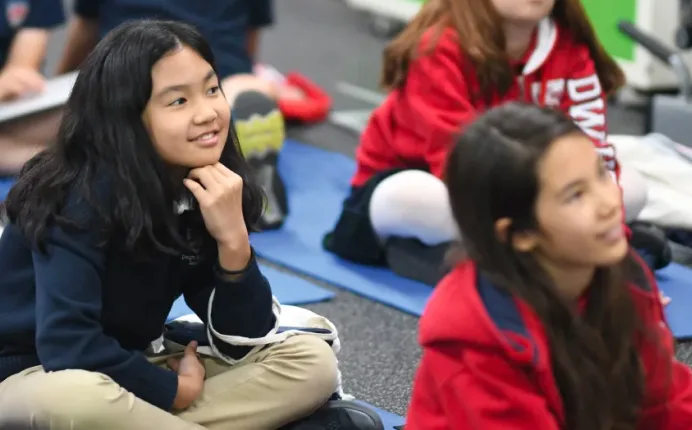What Are the Core Components of the IB Middle Years Programme?

The Middle Years Programme (MYP) is a framework for students in grades 6–10 (ages roughly 12–16) that aims to build on primary education and prepare students for further IB or other advanced programmes. Below are its core components, drawn from how Dwight Seoul implements the MYP.
1. Eight Subject Groups
The MYP requires students to study eight subject groups, providing a broad and balanced education. Each subject group is essential to developing multi-dimensional learners. The groups are:
- Language and Literature
- Language Acquisition
- Individuals and Societies
- Sciences
- Mathematics
- Arts
- Physical and Health Education
- Design
Each subject must receive a minimum amount of teaching time annually (at least 50 hours per subject per year at Dwight).
2. Global Contexts and Concepts
Beyond just studying subjects, students learn through global contexts and through key and related concepts that connect their subject‐learning to local and international issues. These contexts help students understand how what they learn applies beyond the classroom. Examples of global contexts include:
- Identities and Relationships
- Orientation in Space and Time
- Personal and Cultural Expression
- Scientific and Technical Innovation
- Globalization and Sustainability
- Fairness and Development
These frameworks encourage students to think about their learning in terms of wider, real-world relevance.
3. Inquiry-Based Learning & Interdisciplinary Approach
The MYP emphasizes a learning style that is both inquiry-based and interdisciplinary:
- Inquiry-based learning means students ask questions, do research, and build their own understanding rather than just absorbing information. They do hands-on projects, collaborative investigations, real-world problem solving.
- Interdisciplinary learning means that students make connections across subject boundaries. For example, a unit might combine sciences and geography, or history and literature, to explore issues such as climate change, social justice, etc. This helps students see how knowledge in one subject illuminates another, making learning more integrated and relevant.
4. Learner Profile & Holistic Education
A big component is developing the whole student, not just academic knowledge. Key elements include:
- Developing attributes such as being inquirers, thinkers, communicators, principled, open-minded, caring, risk-takers, balanced, and reflective. These are the IB Learner Profile traits.
- Focus on intellectual, emotional, social, and physical growth. The MYP attempts to combine academic rigor with character development, ensuring students grow in more than just one dimension.
5. Assessment: Criterion-Referenced & Reflective
Assessment under the MYP is different from simple exam-based or rote memorization methods. Key features:
- Criterion-referenced assessment, which means students are evaluated against set criteria that describe levels of achievement, rather than by comparing them to other students.
- Variety in assessment tasks: open-ended tasks, debates, experiments, investigations, reflections, and more, rather than just tests.
- Emphasis on reflection: students are encouraged to reflect on their learning processes, set personal goals, and own their educational growth.
6. Personal Project
In the final year (grade 10), students undertake a Personal Project, which is a culmination of their MYP experience:
- It lasts about eight months.
- It is assessed against stringent IB criteria.
- It gives students a chance to apply what they’ve learned: combining skills, content, initiative, and reflection.
7. Approaches to Learning (ATL) Skills
These are the skills that help students learn how to learn. They include:
- Research skills
- Communication skills
- Social skills
- Thinking skills
- Self-management skills
These skills are not tied to one subject; they cut across all of the student’s experiences. They aid students in becoming independent, resilient learners.
8. Service, Action & Global Citizenship
MYP also promotes engagement beyond academics:
- Students participate in service learning and action components, which help them understand and contribute to their communities.
- There is a focus on global awareness: cultural understanding, ethical leadership, sustainability, fairness, etc.
Conclusion
The IB Middle Years Programme at Dwight Seoul is more than just a set of subjects. Its core components weave together broad subject learning, inquiry, global perspectives, holistic development, reflective assessment, and student choice (especially via the Personal Project). Together, Dwight Seoul aims to produce not only academically capable students, but citizens who are reflective, ethical, and ready to tackle challenges locally and globally.
Comments
Post a Comment